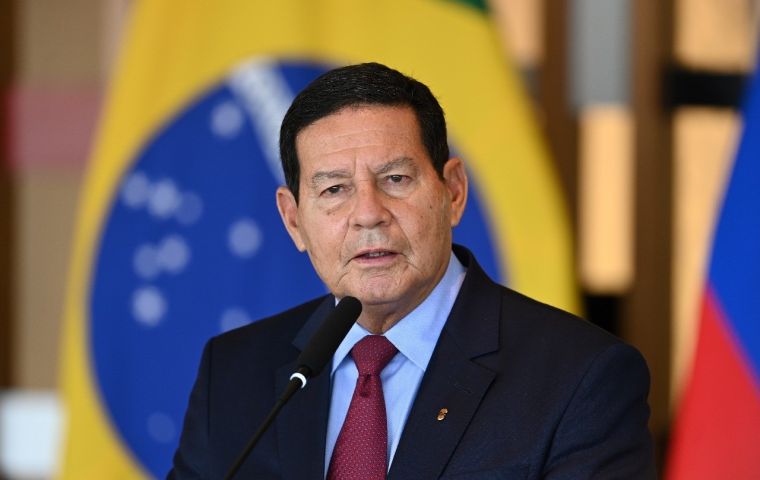MercoPress. South Atlantic News Agency
Brazilian livestock producers will have to deal with manure differently to meet Glasgow's goals
 “There will have to be planning, an adaptation to this (COP26 agreement),” Mourao said
“There will have to be planning, an adaptation to this (COP26 agreement),” Mourao said Following Glasgow's declaration whereby the world -Brazil's delegation included- has agreed to reduce the emission of methane gas by 30% by 2030, Brazilian livestock producers have realized they will need to adjust their work so that the country can fulfil such a commitment.
Vice President Hamilton Mourao addressed this issue saying his country will have a hard job dealing with the emission of methane gas, generated by manure.
”The issue of methane is linked to the excrement of livestock (activity), we have a huge cattle herd, there will have to be planning, and adaptation to this (COP26 agreement),“ Mourao said.
In 2020 Brazil had 218 million heads of cattle, according to a report published last month by the Brazilian Institute of Geography and Statistics. Between 2019 and 2020 the number of heads grew by 1.5%, boosted by growth in meat exports.
General Mourao is the head of the Amazon Council, a body made up of several ministries, which sets policy guidelines on the rainforest where cattle-producing farms have multiplied.
”We have a deadline to adapt, a large part of the producers are already working to collect the manure and then burn it so that it does not pollute the atmosphere,” said the vice president.
The devastating loss of forests is one of the most exposed problems at COP26, which ended up placing the spotlight on Brazil's Amazon rainforest and the rainforest in Congo, after 124 leaders signed the 'Glasgow Leaders' Declaration on Forests and Land Use,' Brazil's delegation among them.
Meeting Glasgow's goals will require transformative actions, such as the ones Mourao addressed.




Top Comments
Disclaimer & comment rules-

Read all commentsNo shit, Ollie.
Nov 06th, 2021 - 05:39 pm 0Commenting for this story is now closed.
If you have a Facebook account, become a fan and comment on our Facebook Page!